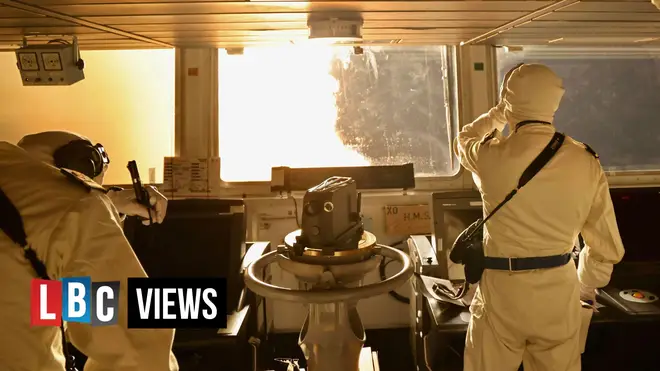
Clive Bull 1am - 4am
11 January 2024, 19:12

Last week an international coalition assembled to warn the Houthis against continued attacks on Red Sea shipping. Not a week later - on Tuesday 9th January - a Royal Navy warship shot down seven drones in an operation with the United States to repel the largest Houthi drone and missile attack to date.
This was a significant move from the UK/US ‘Special Relationship’ as when dealing with the Iranian-backed militia like the Houthis, the drawing of Red Lines will only work if Tehran believes their actions have consequences.
This development demonstrates that the proposition that Israel’s war with Hamas in Gaza has regional consequences is surface level. Iran is acting as a disruptor to regional security with the continued backing of proxies – Hamas, Hezbollah and Houthis - in its bid to undermine the liberal international order that will continue to unleash instability in the Middle East.
The International Chamber of Shipping stated that 20% of international container ships are currently avoiding the Red Sea and instead are using the much longer route around the southern tip of Africa. This has led the UK, US, Australia, Bahrain, Belgium, Canada, Denmark, Germany, Italy, Japan, Netherlands, New Zealand, South Korea and Singapore, to launch "Operation Prosperity Guardian" last month to protect Red Sea shipping.
The Houthi assault occurred just prior to a scheduled vote at the United Nations Security Council on Wednesday, aiming to denounce and call for an immediate cessation of the rebel strikes along the commercial route but a response to over 100 attacks against US forces in the region in 90 days.
Iran has every interest in being a regional disruptor as its calculus is that if the region is enmeshed in conflict, Iran can advance its hegemonic aspirations while averting the attention of the international community as it inches towards the nuclear status.
The Israeli-Palestinian conflict is no longer merely an age-old localised conflict over territory but a regional war in which the first battle shots against the international order have been made by Iran with the backing of Russia and China.
The crisis in the Red Sea has the potential to spill over to UK cost-of-living, having enormous consequences on households and causing similar threats to economic security as Russia’s weaponisation of energy.
But the international community’s - including the United Nations - fight for freedom of navigation in the Red Sea must also be a fight for freedom from Iran’s hostile actions and continued contempt to the international order.
Or their seat at the table should be revoked.
Barak Seener is Senior Research Fellow at the Henry Jackson Society.